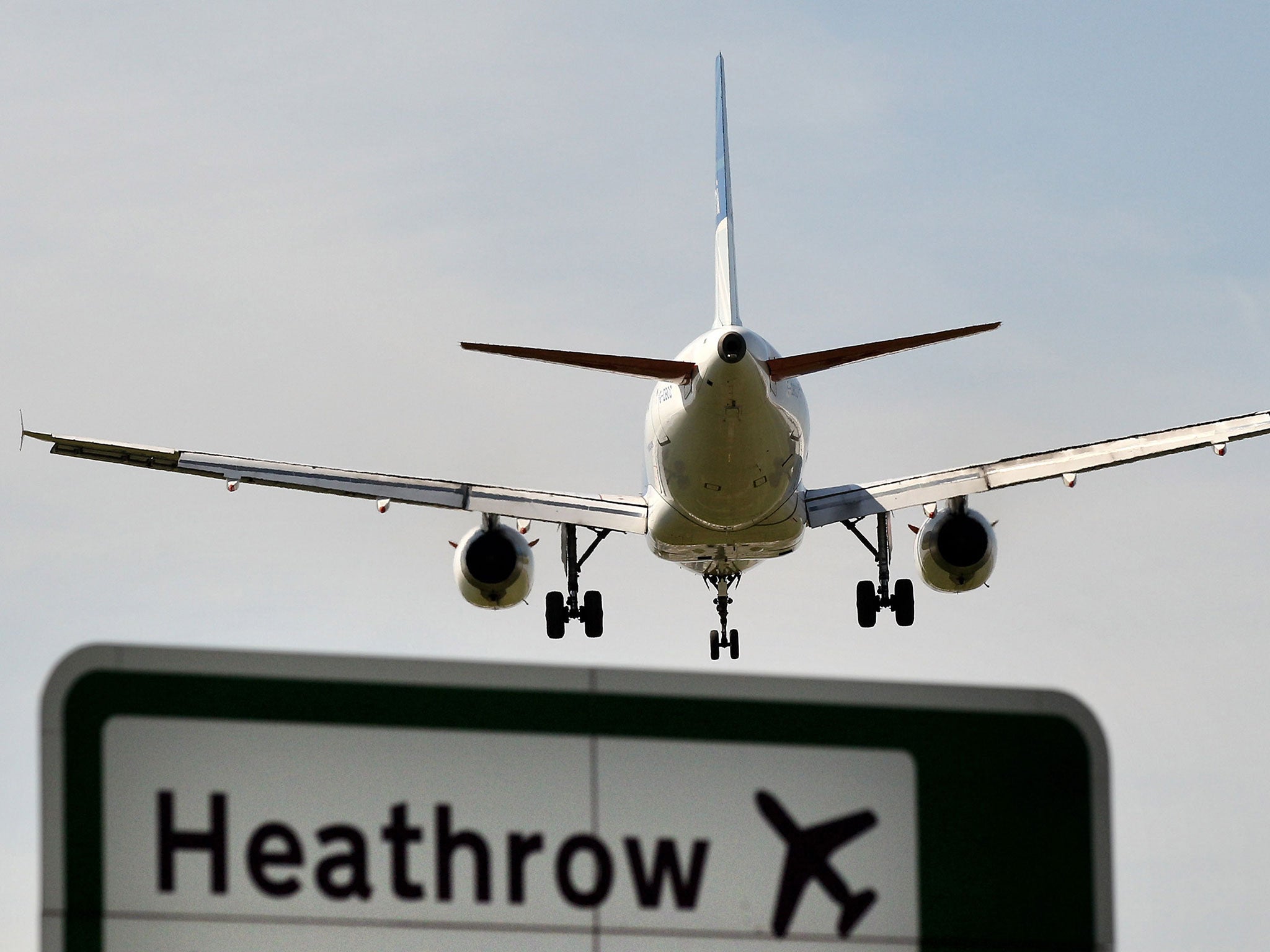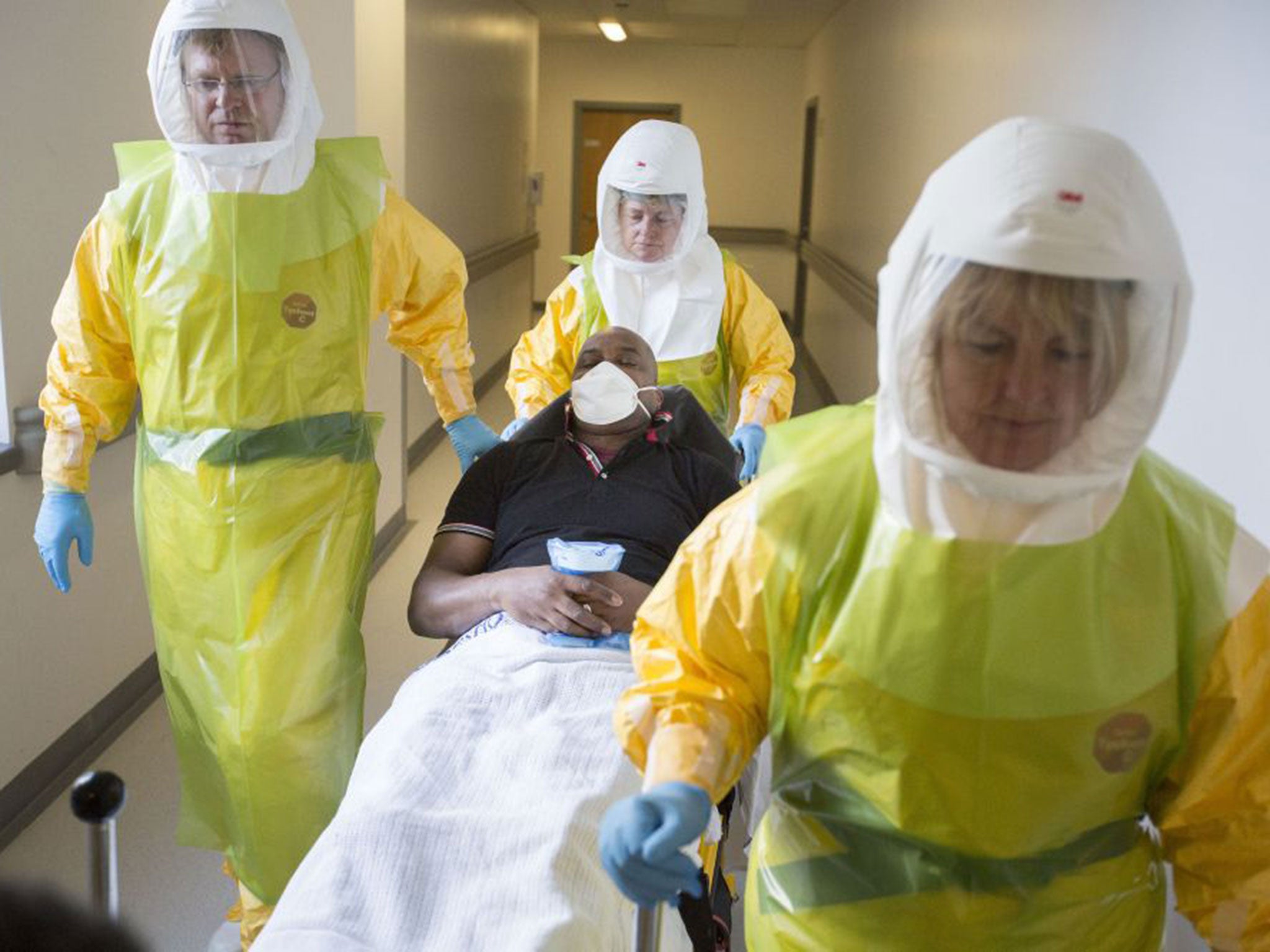Ebola UK: Screening starting at Heathrow Airport on Tuesday
Disease called the 'most severe acute health emergency in modern times'

Your support helps us to tell the story
From reproductive rights to climate change to Big Tech, The Independent is on the ground when the story is developing. Whether it's investigating the financials of Elon Musk's pro-Trump PAC or producing our latest documentary, 'The A Word', which shines a light on the American women fighting for reproductive rights, we know how important it is to parse out the facts from the messaging.
At such a critical moment in US history, we need reporters on the ground. Your donation allows us to keep sending journalists to speak to both sides of the story.
The Independent is trusted by Americans across the entire political spectrum. And unlike many other quality news outlets, we choose not to lock Americans out of our reporting and analysis with paywalls. We believe quality journalism should be available to everyone, paid for by those who can afford it.
Your support makes all the difference.Enhanced Ebola screening will start at Heathrow Airport today as the Government prepares for the deadly disease to come to Britain.
The UK’s largest airport will be the first to introduce checks, at Terminal 1, before they are rolled out at Gatwick and Eurostar terminals by the end of next week.
Passengers from designated countries will have their temperature taken, complete a risk questionnaire and have contact details recorded.
The disease has killed more than 4,000 people in the worst-affected countries of Guinea, Liberia and Sierra Leone and fears were heightened of it spreading in the US and Europe after two nurses became infected while treating patients.
Jeremy Hunt, the Health Secretary, has told MPs it is “likely” that Ebola will be seen in the UK and a “handful” of cases could be confirmed by Christmas.
The announcement came as the World Health Organisation (WHO) warned the epidemic is the “most severe acute health emergency in modern times” and the number of new cases is “rising exponentially”.
Margaret Chan, the director-general, said the Ebola outbreak has shown “the world is ill-prepared to respond to any severe, sustained, and threatening public health emergency”.
“I have never seen a health event threaten the very survival of societies and governments in already very poor countries,” she added.
“I have never seen an infectious disease contribute to potential state failure.”
In a statement to the House of Commons, Mr Hunt said the safety of the British people was the “Government’s first priority”.
“Playing our part in halting the rise of the disease in West Africa is the single most important way of preventing Ebola affecting people in the UK,” he added.
There are no direct flights from the affected region, he said, but indirect routes can be taken to Britain.
Public Health England will be screening and monitoring UK-bound air passengers identified by the Border Force coming on the main routes from Liberia, Sierra Leone and Guinea.

“This will allow potential Ebola virus carriers arriving in the UK to be identified, tracked and given rapid access to expert health advice should they develop symptoms,” Mr Hunt added.
“These measures will start tomorrow at Heathrow Terminal 1, which receives around 85 per cent of all such arrivals across the whole of the airport.”
Anyone who tests positive for Ebola will be transferred to the Royal Free Hospital in north London, which has a specialist isolation unit, and there are plans to increase capacity for patients in Newcastle, Liverpool and Sheffield.
A Downing Street spokesperson said the decision to introduce enhanced screening airports was based on advice from the UK chief medical officer Dame Sally Davies.
The Government has sent medical equipment, funding and aid to the countries worst-affected by the disease, including a flight that landed in Freetown, Sierra Leone, on Monday.
A nurse in Texas who was in contact with victim Thomas Eric Duncan is being treated for Ebola after become infected in what officials called “a breach of protocol”.
A Spanish nurse who treated a missionary in Madrid became the first person to contract the disease in Europe earlier this month.
A man is undergoing tests for Ebola at a hospital in Poland after being taken by ambulance to Bieganski hospital in Lodz on Monday.
The 31-year-old told medical staff he had been working with people from Guinea in Germany but his symptoms could be caused by other illnesses, officials said.
Another possible case was being investigated in Brussels, where two previous scares have proved to be false alarms in recent days.
Local media reported that a man who had recently travelled to Guinea was admitted to the Centre Hospitalier Universitaire Saint-Pierre and was being examined under quarantine on Monday.
Additional reporting by agencies
Join our commenting forum
Join thought-provoking conversations, follow other Independent readers and see their replies
Comments